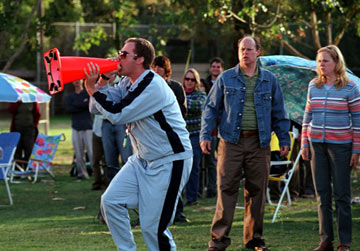SIDELINES: Parental conduct on the sidelines of games can negatively affect athletes’ desire to pursue their talents, and create a negative environment for many.
By Peyton Varner, Staff Editor
At an early age, many parents enroll their children in various sports to encourage the children to have fun and be active. Eventually, some of these children develop a passion for athletics and participate in an individual or team sport for their own individual success and happiness. But in this day and age, the behavior of many parents, such as expressing negative feedback toward their children, has a detrimental effect on the experience of athletic events. Parents often “coach” from the sidelines, yelling and screaming at not only their own children, but at referees, other teammates, and opposing team members. What parents probably do not realize is that such conduct only has two outcomes: one, the young athletes become overwhelmed and upset over the comments made by parents, and two, their comments inadvertently influence the behavior and attitude of their child during sporting events. While parents believe they have good intentions and are encouraging their athlete to perform to the best of their ability, many of these athletes eventually lose their passion for the sport and quit due to their parents’ behavior.
Mr. Jim Vaughan, athletic director at Riverside Poly High School, believes that when a parent acts in a negative way, it is usually an issue with their own child. When their athlete is not doing well, parents often respond by blaming the referee, coaches, other teammates, or even the athlete themself. This can cause an immense amount of pressure, especially as the player matures, because in the athlete’s eyes, there is no room for error or disappointment. “A few years back we surveyed several athletes and all of them had said that they only wanted parents to support,” Vaughan stated. Athletes often struggle with trying to balance their academics with sports and extracurriculars and, essentially, all they want is a supportive and loving environment to come home to.
Athletes also tend to mirror their parent’s emotions. For instance, when a parent is angry and disappointed in their athlete after every practice or game, the child may portray the same attitude on the field with their own teammates or other athletes, creating a very negative environment. Sports are events where participants should feel relaxed while working, competing, and enjoying themselves. These should be events that athletes personally want to pursue because they find it fun, not because of their parents or other influencers. Instead of negative discussion on the sidelines, there should be love and support for each and every individual player, because at the end of the day it is just a sport, not the end of the world.

